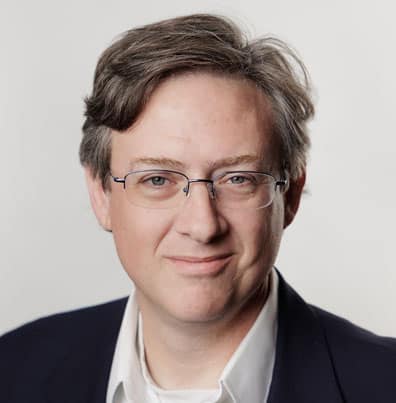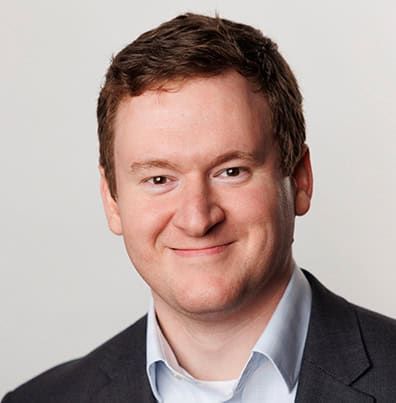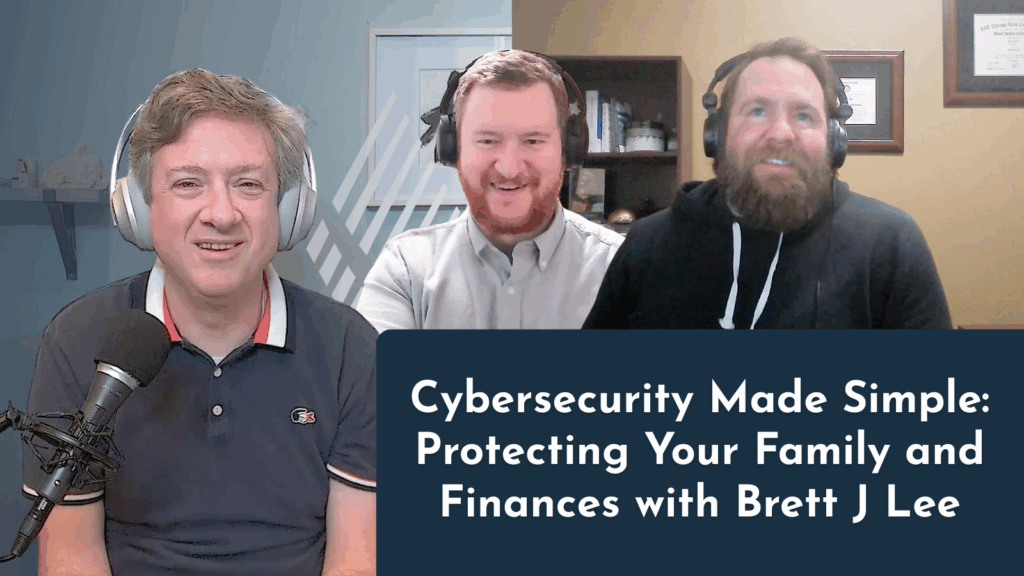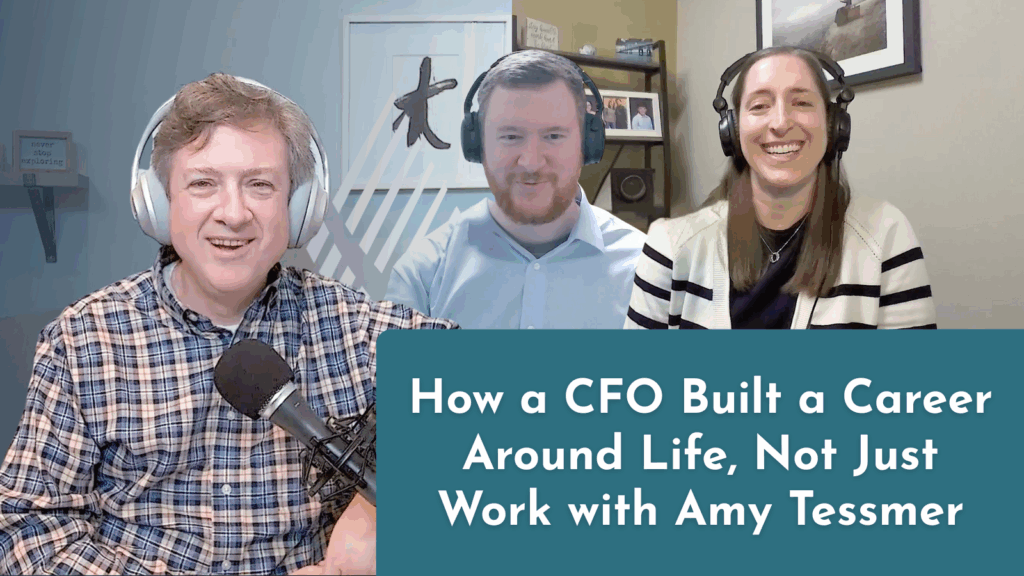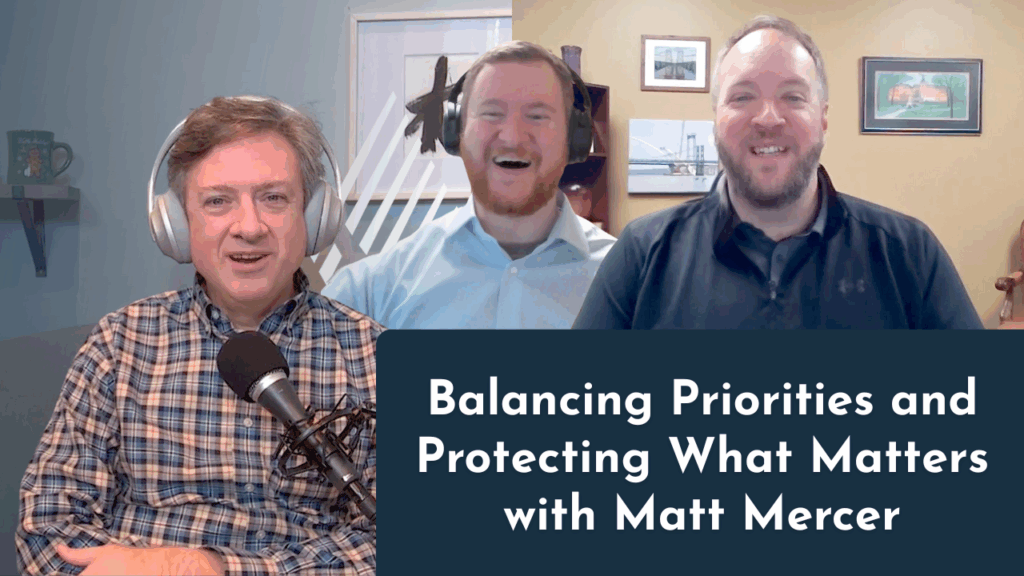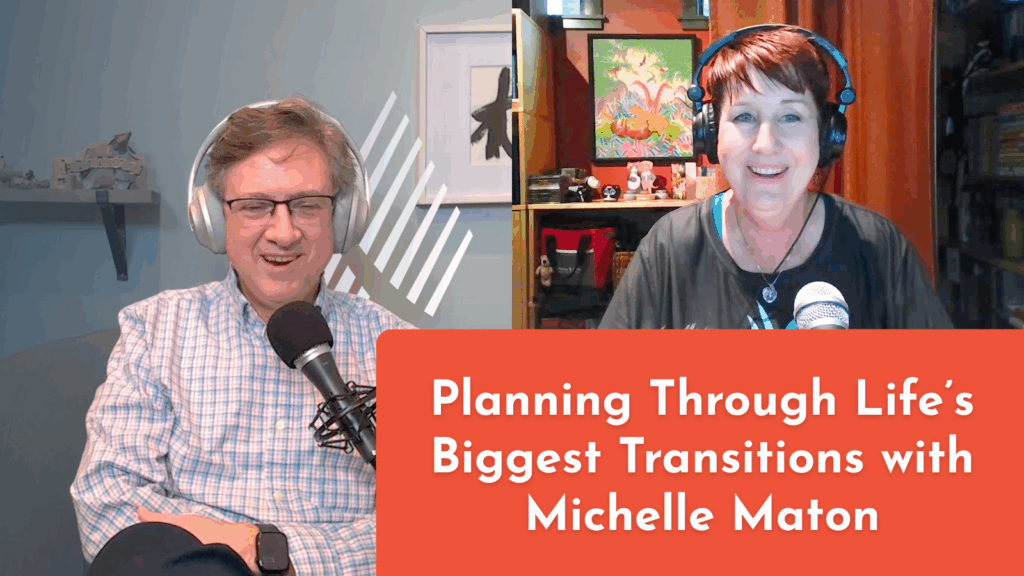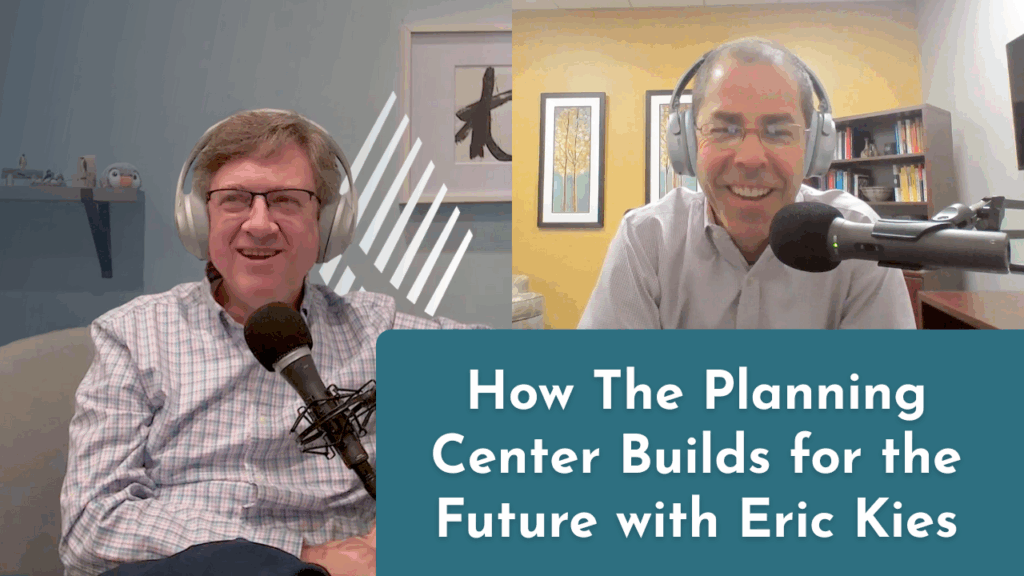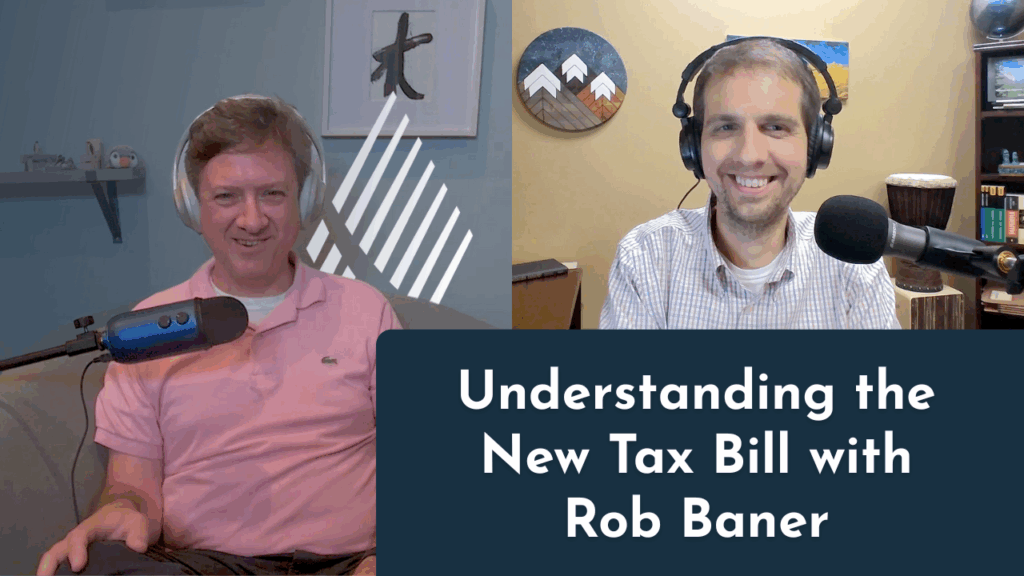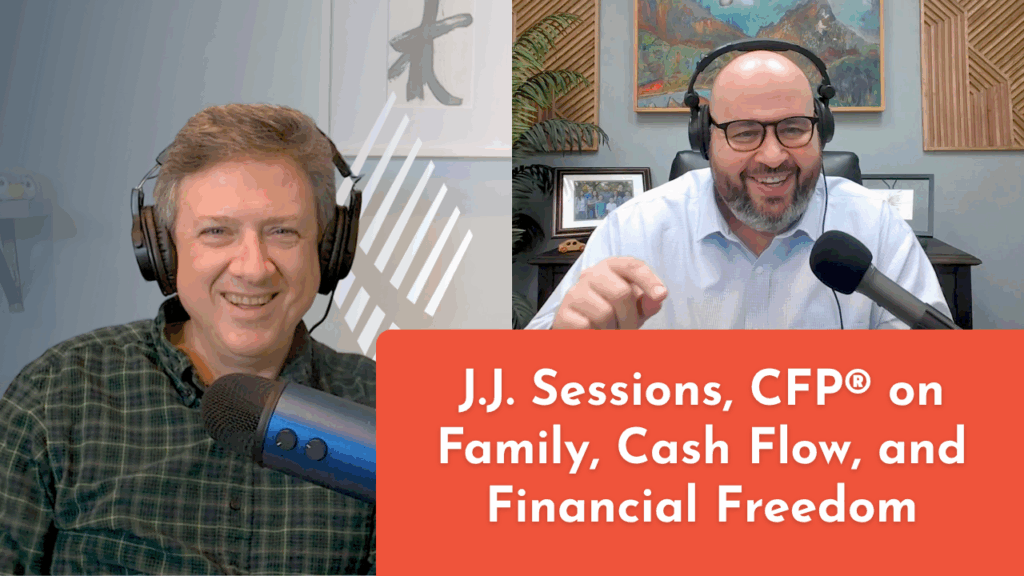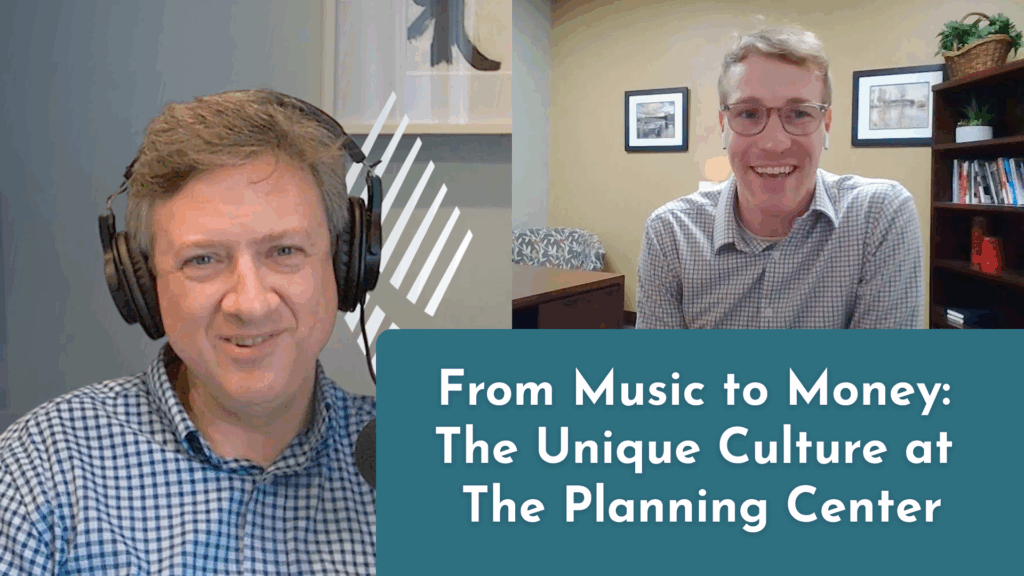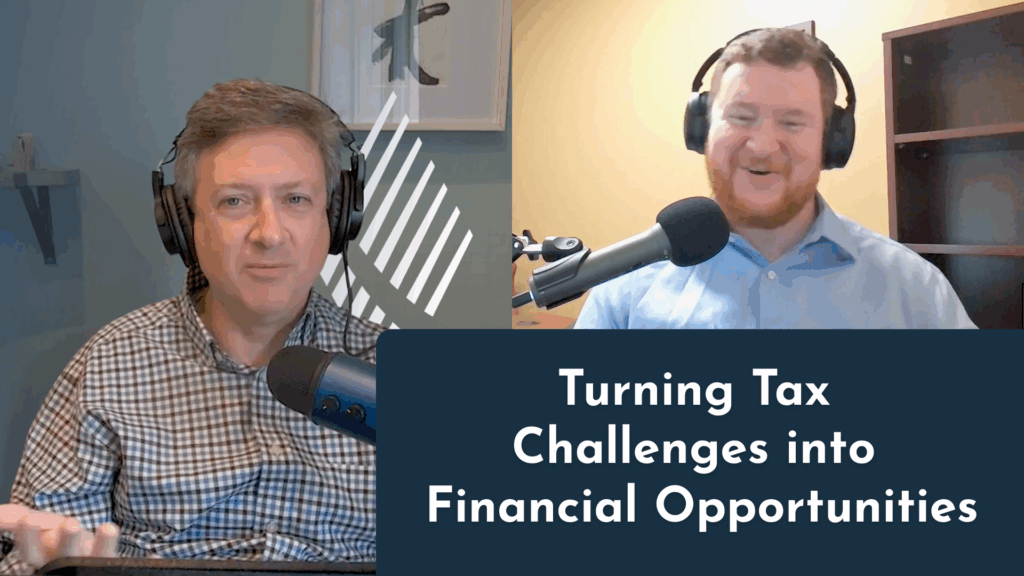[00:00:00] Patrice Sikora: Every number on a balance sheet tells a story, late nights spent building something meaningful, the risks taken, the difficult conversations, the lessons learned along the way. But true wealth is not measured in dollars. It’s woven into the stories that we create, the experiences that shape us, and the memories that outlive us.
[00:00:21] Patrice Sikora: Welcome to the Living Beyond Numbers Podcast with Jude Boudreaux from the Planning Center. This show is not about spreadsheets and financial jargon. It’s about real conversations and powerful stories. That help you align your money with your values, your dreams, and your legacy, because at the end of the day, it’s not about how much you have, it’s about the life you wanna live and the stories you leave behind.
[00:00:46] Patrice Sikora: Now onto the show. You create your environment and that environment can set the tone and tell your story to everyone who joins you. We thank you for joining us on this [00:01:00] podcast. Welcome to Living Beyond the Numbers, with your host Jude Boudreaux and his director of positivity, Caleb Irvingdale I, Patrice Kora.
[00:01:09] Patrice Sikora: And today we’re gonna learn more about Jude and Caleb from Jude and Caleb and where they plan to take this show. Gentlemen, I’m so glad to be here with you. Thanks for having us, Patrice. No problem. Now. Okay, we got two of you, Jude. Caleb, how’d the two of you get together? How did you meet?
[00:01:27] Jude Boudreaux: Yeah. Um, through this very fortunate thing of the planning center.
[00:01:31] Jude Boudreaux: Um, you know, so I’ve, you know, I had, um, I. I’ve been a planner for a long time, and very fortunately, met a couple of the folks who are now partners of mine at the planning center. Probably, I mean, almost 20 years ago, um, we met at a group, uh, a meeting called the FPA Next Gen Community, which is for planners, uh, you know, younger financial planners.
[00:01:54] Jude Boudreaux: And so there I met Eric Keys and JJ Sessions, um, you know, who became really [00:02:00] great friends of mine and Eric was, uh. Getting started out at this thing called the Planning Center with Marty Kurtz, who became kind of a friend and mentor to many of us. So that when I started my own firm called Upper Line, uh, 14 years ago, I know that, ’cause I did it two weeks before my daughter was born.
[00:02:17] Jude Boudreaux: I would not recommend that timeline necessarily for other people. It was, uh, stressful. It was wonderful to be able to be a stay at home dad and have more time with her. But it was a definitely a pretty intense period of time to go through and start a business and have a newborn. But, um. When I started Upper Line, I copied a lot of what the planning center was doing.
[00:02:35] Jude Boudreaux: Copied this idea of we’re gonna charge a flat rate, uh, for our clients so that they’re really clear about the pricing. Uh, we are charged for financial planning and we, you know, we get paid for that, not just for asset management, um, and that we’re gonna do it on this whole person that we’re gonna look at a person’s life and put that at the center and then use their money and the numbers part to support their life vision and what they’re about.
[00:02:59] Jude Boudreaux: So, [00:03:00] um. So for me it was just like, Hey, they’re doing something great. I’m gonna try to do that here in New Orleans. And then it became a. And it evolved over time to where as my firm grew and the planning center grew, uh, it made sense to kind of join forces and come together. So I merged with the planning center, I believe, almost eight years ago now.
[00:03:21] Jude Boudreaux: Um, and so that made me a partner here and, um, one of our senior financial planners. I work with a number of families and I’m responsible for marketing and business development for the firm across kind of the border. Um, and then, you know, that led me to, to meeting Caleb who joined our tax team a couple years after I became part of that.
[00:03:41] Jude Boudreaux: So, Caleb, why don’t you tell us about your journey and how you ended up here.
[00:03:45] Caleb Arringdale: Yeah. I was working in public accounting and then I. The pandemic hit. And I, I worked at a place I really, I really liked nothing, just nothing negative to say about them at all, but was looking for something with a, just a little bit more structure, [00:04:00] kind of the next place to take my career.
[00:04:02] Caleb Arringdale: And I met with a recruiter who said, you know, there are all these, you know, internal jobs and she’s telling me about them. And they just did not sound at all interesting. And then she goes, oh. There’s this kind of odd job, but you seem like a personal guy. They’re looking for someone who can really talk to people.
[00:04:19] Caleb Arringdale: You should check this out and so send me to the planning center and. At first, I had a pretty negative idea of what like financial planners were because the ones that I worked with were all this kind of investment managers and I wasn’t super impressed with usually the quality of their work. And then I met with the planning center and I was just immediately, you could see the difference.
[00:04:40] Caleb Arringdale: Could see the, the way they bill, just the way they interacted with people is so different and ended up, you know, really liking it. Kept interviewing, got, got hired July 1st, 2020. So, uh, ear early pandemic. So it was, it was a pretty crazy time to start, but it’s been great. And then, you know, very quickly started working with, with Jude and, [00:05:00] and clients all over the country, so, and quite a few in New Orleans.
[00:05:03] Caleb Arringdale: So it’s really great way to get to meet him.
[00:05:05] Jude Boudreaux: Yeah. Well that’s a good point. I should say that I, I’m based here in New Orleans, uh, Caleb’s in our Quad Cities office, which is at the Iowa, Illinois border, and we have offices in Chicago, Fresno, and Anchorage.
[00:05:17] Patrice Sikora: Jude, what’d you wanna do when you were a kid? Did you wanna get into planning?
[00:05:21] Jude Boudreaux: Yeah, no. Um, I was, uh, I remember years ago I was, I’m older now, was at the investment news 40 under 40, and still a young financial planner at the time. And they had us do these little short videos of like, what did you wanna be when you were a kid? And they had baseball bats and astronaut helmets and all of these things.
[00:05:38] Jude Boudreaux: And I remember thinking like, I don’t have a good answer for this question. Um. What I wanted was to be financially successful. I just, um, I saw how my parents struggled with money. You know, my dad sold cars, my mom cleaned houses when I was growing up, and I often somewhat jokingly say to clients, there weren’t a lot of conversations about money in our household.[00:06:00]
[00:06:00] Jude Boudreaux: If there was enough money and things were going okay, they just didn’t talk about it. If things were difficult and stressful, you could feel it and they’d kind of. Argue about it, but there was not, um, you know, not like a real framework for talking about that. And I often wondered, you know, what would’ve been like if somebody had helped them early on in their life to help make some financial choices that might’ve been able to set them on a different trajectory.
[00:06:25] Jude Boudreaux: Um, you know, I was just this kid who growing up loved. Information and reading and um, you know, I grew up in a little town down the bayou here, as we would say in New Orleans. Um, I jokingly refer to the place I grew up as, not the end of the world, but you can see it. It’s about an hour drive south of New Orleans.
[00:06:42] Jude Boudreaux: So it’s way, ways down there and it’s um, it’s a lovely family. First community, and I’ve, um, wonderful memories of growing up there. Um, but my dad loved fishing in the outdoors, and I didn’t, I wasn’t that kid. I’d bring my books and we’d sit in the boat, so we’d go fishing [00:07:00] and I would, uh, read while we were out there and, um.
[00:07:04] Jude Boudreaux: I just wanted to find a way to do something and, and be in a different situation. When I, when I got older, I thought maybe that would be a lawyer, but that’s, um, it didn’t seem that exciting. After I took my first kind of classes at Loyola in New Orleans, um, thought I would do management, but then I was working at a hotel five nights a week, working full-time while I was getting my degree and, um.
[00:07:27] Jude Boudreaux: That didn’t seem like the, I needed a management degree to do what the managers at the hotel were doing. And I stumbled into a finance class and I really loved it. It was this great blend of numbers and certainty, but also the ability to build models and think about ideas. Um, and then I happened into a class called Personal Financial Planning for professional planners, um, which was taught by a guy named Dr.
[00:07:50] Jude Boudreaux: Dalton, who I didn’t know at the time, but. Owned a company called Dalton Publications, which wrote the CFP board’s test prep materials. So, [00:08:00] um, was one of the real leaders in kind of the industry. And through that class I learned about what financial planning was and really fell in love with it, that I could work with people and money and numbers.
[00:08:13] Jude Boudreaux: Uh. Was just a great blend of all the things that I loved and that I wanted to do. So, um, so it became, uh, a very fortunate happenstance thing that led me on this trajectory to, you know, go to work in Colorado at Janus Mutual Funds to then move back to New Orleans and work at Mass Mutual for five years in a number of capacities to leave and become a director of financial planning for a small firm and then start my own.
[00:08:38] Jude Boudreaux: Um, and so I’ve like many things in life is, you know. Somewhat random choices can lead us down a pathway. And when you’re 20 years down the road, you can look back and see how it came to be. But if, you know, starting out from the front, it wasn’t necessarily the path I would’ve imagined.
[00:08:54] Patrice Sikora: Right, right. Caleb, are you still in the area where you grew up?[00:09:00]
[00:09:00] Caleb Arringdale: Ironically, I am now. Uh, I’ve always, I keep trying to get jobs that take me farther away from it, and then I keep, and then I keep somehow getting pulled back to where I am. So I, uh, I’m actually from Davenport, Iowa, and now I live just other side of the river, about half an hour from where I used to, from where I was born.
[00:09:17] Caleb Arringdale: So, so, yep. Still, still in the basic area. I’ve traveled quite a bit, but still in this basic geographic area,
[00:09:23] Patrice Sikora: and I’m not gonna. Really go into depth about your background, because if listeners stick with us and go to episode two, they’re gonna learn a lot more about you too. But moving along here, you are an accountant
[00:09:36] Caleb Arringdale: that I am.
[00:09:37] Caleb Arringdale: Yep.
[00:09:37] Patrice Sikora: Okay. Alright, so we’ve got the planner, we’ve got the accountant, and you seem to have mesh very nicely together. Why? What makes the two of you tick? Uh, that, that you can, you can bounce off each other so well.
[00:09:51] Jude Boudreaux: Well, I think one of the magic things about the planning Center is that um, you know, the tax part is so deeply integrated into the planning parts, [00:10:00] so.
[00:10:00] Jude Boudreaux: It used to be when I was on my own. We talk about these planning concepts and we could illustrate how a Roth conversion might work for somebody. And yeah, we know how much the taxes are gonna be and software can kind of show us how much the taxes would save over time. But now we bring in, I. You know, our team of professionals who not only are gonna talk about that concept, but can tie it directly back to last year’s tax return.
[00:10:25] Jude Boudreaux: What are we expecting for this year? How do we adjust your quarterly payments if you’re making those, what other things can we think about that maybe we haven’t brought into it? So, I mean, Caleb, I’d love to hear your perspective on that too, but I think that’s big part of the secret sauce.
[00:10:38] Caleb Arringdale: Yeah. And I frequently refer to that literally as the secret sauce, because bringing those two sides together works really well.
[00:10:44] Caleb Arringdale: The accounting world, I. We’re all about numbers and we’re all about solid facts and, and, you know, provable data, the financial world is usually about, you know, goals and, you know, moving towards like an approximate destination. And when you merge those two together, [00:11:00] it just works really, really well. I found that I.
[00:11:03] Caleb Arringdale: When you’re able to make a good financial plan, and then you throw that tax piece into it, you just get to amplify it just by that little extra bit, and it just helps the whole thing go better. And, and it’s, it’s been a great thing. I think internally. We really like it. We work really well together and clients love it.
[00:11:17] Caleb Arringdale: Yeah.
[00:11:18] Patrice Sikora: And that brings me to, well, that brings me to the next question. What, what do you like best about the job?
[00:11:23] Jude Boudreaux: It’s funny, my kids talked about, they brought this up to me the other night about, um, like, well, you love what you do. And so I was like. Like, it was some kind of like, bad thing and it was like, yeah, but it still work.
[00:11:32] Jude Boudreaux: Like I, uh, they still pay me to show up here, but I do, I love every day getting to come in and, um, work with people. You know, that it’s the clients that I love and I often say it’s not, um, if you love the numbers and the money parts, there’s plenty of jobs for you in this industry. You go be an analyst and work at a mutual fund or, or do lots of things, but you know.
[00:11:53] Jude Boudreaux: For me, it’s the families that we get to work with. ’cause, you know, we get to plan with them for these really [00:12:00] incredible things that they’re working towards. We are often one of the first phone calls when something really tough happens too. Um, you know, I had a couple of clients pass away last year and I know that, you know, their surviving spouses contacted us a couple of days afterwards, um, you know, and to let us know the news and to.
[00:12:20] Jude Boudreaux: Thankfully for those folks it’s ’cause they knew too. We have a plan in place and so there’s somebody who’s there looking out for stuff for us that’s gonna help navigate us through this part when, when my world changed really unexpectedly. Um, and so I’m forever grateful that we get to be, we get to play this special role within clients’ lives and, and help, um, you know, kind of navigate these, these big important moments for them.
[00:12:44] Caleb Arringdale: Caleb, again, it’s, it’s absolute the people. From my background in accounting, you don’t get to talk to that many people frequently, especially as you know, a junior accountant, you’re really just in the back wrenching numbers and you work your way up and you get [00:13:00] a little more interaction, but you really never, I.
[00:13:03] Caleb Arringdale: Talking with people a lot or, or helping people make like a positive difference in their lives. And this, it’s totally different. We get to work with people all the time and you get to see how the recommendations you’re giving positively impact them, and that’s just amazing to see When you see someone who, who’s able to grow a business or get out of debt or, or.
[00:13:25] Caleb Arringdale: Move by their dream house. We, we had a client who pulled up in his Corvette and was like, thank you guys. I wanted to bring it by to show you, because this never would’ve happened without you guys. ’cause that was one of his goals. And you know, we helped to make it happen. So seeing that makes this job great.
[00:13:39] Patrice Sikora: Jude, was there one defining moment in your life to get you to this point?
[00:13:45] Jude Boudreaux: You know, if, I guess if I were to think about one thing, I mean, I feel like there’s a lot of things that kind of touch on, but there was, um. There’s this I exercise that I often use with clients. Uh, you can find it on the internet.
[00:13:56] Jude Boudreaux: It’s George Kinder’s. Three questions. Maybe you can put a link in the show notes to it. [00:14:00] The, um, three questions in very brief are, if you had enough money for the rest of your life, what would you do? If you had five, two years to live, what would you change? And if you had 24 hours to live, what would you miss?
[00:14:11] Jude Boudreaux: Um, in a kind of emotionally intense place to have a conversation with client. But I think it’s another illustration of what. The personal nature of what we do and why it’s so important. But I had never encountered those questions before being at one of these next gen conferences. And, um, Susan Galvin, who was the co-author of this book with George Kinder, um, was there and presented and gave these questions.
[00:14:35] Jude Boudreaux: And so I bought a copy of her book and I read the whole thing on the airplane on the way back to New Orleans and. Karen, it was like 12 or one when I got home finally. And it was like woke her up. I was like, we need to talk about these. And she’s like, can we talk about them tomorrow? Like, this is, uh, like I wanna have this conversation, but not right now.
[00:14:52] Jude Boudreaux: But I was so juiced up about it. And if I look back at that, um, I can very much see how it laid the foundation for the life that we built [00:15:00] together. What came out of that was if we’re, you know, gonna have a family, she wanted to own a place, we like to travel, so we wanted to own a condo and not a home. So we have flexibility for that.
[00:15:10] Jude Boudreaux: We wanted a two bedroom, two bath condo with a pool on or near the parade route in New Orleans. Um, and that’s where we’ve lived now for 18 years. Um, you and we’ve renovated it completely, and now it has three bedrooms for our two kids. And, um, but if I look back at that and, um, often say like, you know, from, if I, if I look at my life like.
[00:15:30] Jude Boudreaux: All of the good things I have come because of Karen and her involvement in it. Like, um, the ability to start, uh, upper line, our kids, the, um, conversations we’ve had that led us to this, the support that she provides, like the, that she believed in me at times at the beginning that I didn’t believe in myself.
[00:15:46] Jude Boudreaux: Like, so that for me has always been, you know, I, I can definitely point back to that one thing.
[00:15:52] Patrice Sikora: And if I were to ask you to, um, define success, I think I might hear the name Karen.
[00:15:58] Jude Boudreaux: Yes, absolutely. And, [00:16:00] um, unfortunate for my wife that it’s become a bit of a meme these days, uh, which she will point out the Central Park person.
[00:16:07] Jude Boudreaux: Her name was Amy, and Amy is her sister’s name. So it should be Amy’s and not Karen’s perhaps. But the, um, now I, every good light thing I have in my life comes from. Karen and her love and belief in me. And, um, one fortunate thing about, you know, my role in this business has been, um, just seeing other people and what they’ve done in their lives, the choices they’ve made and they felt good about, and, uh, choices they made and perhaps regretted.
[00:16:31] Jude Boudreaux: Uh, and there’s a quote, I can’t think of who said it. Basically that so often men achieve success long after the reason they sought it has passed. And so I’m fortunate that, um. I’ve built that with her and that I haven’t lost sight of that. So, um, you know, keeping focus on that and you know, what it is you’re trying to do and build, um, was not about having more money, but it was about having a way for us to see the world together and be together.
[00:16:59] Jude Boudreaux: So, [00:17:00] um, so yeah, so I’m super fortunate and grateful to have that.
[00:17:03] Patrice Sikora: Oh, Caleb, I was gonna ask you the same question. Um, you wanna try and attempt something to top that?
[00:17:08] Caleb Arringdale: Absolutely not. Um, so my wife’s name is Karem, K-A-R-E-M. So just this much different from a Karen, but no, obviously I’ll. Shout out that she’s obviously been a huge, huge amount of my success is totally owed to her, but as far as like a life changing moment, a moment that pushed me towards this, I can’t, I don’t think there’s a, a single moment that did it.
[00:17:32] Caleb Arringdale: It’s a series of choices. It’s the small choices we make that when looking back, we may not realize it, but this slowly, slowly pushing you in a certain direction. And, and thankfully those choices have, you know, led me here. So pretty happy about it.
[00:17:47] Patrice Sikora: Is there one common myth you’d like to debunk about your industry?
[00:17:53] Patrice Sikora: Jude, let’s start with you.
[00:17:56] Jude Boudreaux: I dunno if a really solid answer for this one. It’s that, you know, they’re, so [00:18:00] much of the way many people enter our industry is, uh, sales driven because they are, uh, you know, literally agents. They’re meaning they represent and legally responsible to. Uh, company, not necessarily to the client.
[00:18:14] Jude Boudreaux: Um, and so, you know. I think the myth is that we’re, that everybody is kind of wired that way. I think many of us has ended up in fee only firms that, you know, work as fiduciaries for our clients. Uh, meaning legally we’re required to act in our client’s best interest. I think it’s the single most important question that anybody can ask, uh, if they’re thinking about hiring a planner, is, uh, will you accept fiduciary responsibility for us?
[00:18:40] Jude Boudreaux: Um, because it is, uh. It’s not a some time thing, like doing the right thing is all the time thing. And um, you know, I think the myth is that so many of us are, uh, all have these other outside things and we do our best as a firm to really be clear about our pricing and it’s very transparent so that clients know exactly what they’re paying and hopefully they’re getting a good [00:19:00] value out of that.
[00:19:01] Patrice Sikora: Caleb, how about your side of it?
[00:19:03] Caleb Arringdale: I would say from my old perspective was the kind of the joke we say, especially amongst accountants that, you know, finance guys are all accountants who couldn’t hack accounting 2 0 1 in college and thus he decided, well, I guess I’m gonna get into finance. And my biggest surprise when joining the planning center.
[00:19:19] Caleb Arringdale: Honestly, this sounds bad, but it was true how smart the planners were. Blew me away because I’d only worked with like investment advisors who were just salesmen. They were just pushing a product and nothing against them. Some were, you know, very nice. Some of ’em knew a little bit about what they were doing, but they were just sales guys and then working with actual planners who were.
[00:19:39] Caleb Arringdale: So smart and so insightful and really help get to the psychology of money beyond they. They see the numbers, they can help you with the numbers, but beyond that, see how the numbers like actually impact you and how those numbers work towards your goals. To see that done well just blew my mind.
[00:19:54] Jude Boudreaux: Just elaborate on that a little.
[00:19:55] Jude Boudreaux: ’cause I think that. I mean it. One of the things that I’d written down in preparing for this [00:20:00] episode was like, you know, do what we do at the planning center. You have to love people. And if I look at the team as we’ve grown, we’re about 30 employees now. They’re all people who really care about our clients and who love people.
[00:20:09] Jude Boudreaux: And something else we’ve talked about is that. Probably need to be pretty sharp ’cause it’s, um, everybody on the team is sharp and great at what they do. So, um, so you’re gonna be pushed to, to be great. Uh, and so it’s a, it’s an exciting place to come and be because you’re people are gonna be smart and competitive, but in a caring way.
[00:20:30] Caleb Arringdale: It can be an intellectually intimidating place for sure. When I first started coming from other firms, I was usually kind of like the smart guy. Like, you know, I’m, I’m a nerd, I’m a geek from way back. That was expected almost. But then coming here, the, just the amount of brain power is truly impressive and it can be definitely a bit intimidating at the beginning.
[00:20:49] Patrice Sikora: This next series of questions. Caleb, you’re out of it because you get to answer them in episode two. Excellent. Jug, we’re focusing on you because I know at the end of your podcast from going forward, [00:21:00] you intend to ask some rapid fire questions of all your guests. So you gotta start, right?
[00:21:06] Jude Boudreaux: Yes, I suppose so.
[00:21:08] Patrice Sikora: Question number one, what is your favorite animal?
[00:21:12] Jude Boudreaux: It’s Penguin and everybody tangentially associated with me will know that there’s a big thing in my life. I’ve kinda disappointed with how popular penguins have become over the last number of years. It used to be a fringe thing, uh, but through the March of the Penguins and Happy Feet and all that stuff, they’ve become much more popular.
[00:21:28] Jude Boudreaux: But there’s a shelf full of, uh, penguins at the office here in New Orleans if you ever come by.
[00:21:33] Patrice Sikora: Alright. What item is always worth spending more money on?
[00:21:38] Jude Boudreaux: My answer would be, I think in general it’s like. Travel, but in extending your trip or having a unique experience while you’re somewhere, um, to not necessarily to spend more on a hotel and as I’m a planner, so I talk to people about their money choices all the time.
[00:21:55] Jude Boudreaux: I generally often say like, I really don’t care what you spend your money on. I care [00:22:00] that you know where it is and that you made a conscious choice about it. And so for us, it’s not about having a nice hotel room. When when I met Karen, she worked at the Ritz Carlton and you know, we can enjoy a nice hotel room, but for us it’s more about.
[00:22:13] Jude Boudreaux: I’d rather spend half as much and stay somewhere twice as long. So, um, so we try very hard to balance, uh, our needs and our budget and spending on that. And so I think it’s always worth spending money on, on extending the travel or on having that peak experience while you’re there. Occasionally I’ll see clients not do, they’ll think, oh, well this trip costs a lot of money and so I’m not gonna go do this one big thing or this one splurge.
[00:22:37] Jude Boudreaux: Chances are that splurge is, you know, there’s a quote about, you know, we don’t remember days, we remember moments. And, uh, having those moments in life is something I’m a big believer in trying to create and trying to foster. Um, often feel like I’m a memory collector. Like that’s sort of my job as dad is to create memory environments for kids.
[00:22:55] Jude Boudreaux: And, um, so that one special thing. That’s what I wanna do. [00:23:00] That’s very worth spending money on those things so that you have those peak experiences and that you get those things that you get to remember and talk about for years after.
[00:23:08] Patrice Sikora: Well, that moves nicely into the next question here. If you had to buy happiness, what would it be?
[00:23:15] Jude Boudreaux: Uh, uh, these answers will change over time, but I’ll say like for, um, for today, like, or just where we’ve been the last month or so would be honestly like. Just like a nice meal where we could sit and talk. Um, the four of us, uh, it’s been very hectic with my growing children and sports and work travel for me at times.
[00:23:36] Jude Boudreaux: Um, and so we’ve having one nice meal where we could sit down together and just talk would be what I would spend it on right now. And summer’s coming up for us. We do these long road trips in the summer, so we’ll get a lot of that soon, but, uh, probably not a whole lot over the last three weeks and probably not a whole lot for the next three weeks either.
[00:23:54] Patrice Sikora: All right. Fair enough. Fair enough. Yeah. And then as we wrap this up, I wanna ask you both, [00:24:00] what is one key takeaway you want listeners to get from this podcast?
[00:24:05] Jude Boudreaux: Hey, Caleb. Why don’t you go on that one?
[00:24:06] Caleb Arringdale: A takeaway? It’s actually something I heard not that long ago that really stuck with me was prioritize later, and I thought that was such a good.
[00:24:15] Caleb Arringdale: Way to think about all sorts of things, right? Priorit prioritize later means eat healthy now. So in several years you’ll still feel good exercise. Now, develop friendships, now do all these things now so that later on. You will be happier, healthier, you know, better suited for life in general. And I think that’s the exact idea in financial planning as well.
[00:24:38] Caleb Arringdale: Make good decisions now so that later you can have a life that you that, that you also continue to enjoy. So prioritize later is the thing I’m thinking about.
[00:24:45] Jude Boudreaux: Alright, Jude. Mine is, is about, um, you know, people often ask about like the firm and so many things, and I think the. What I think about the planning center and what we do is that we are good people serving good people who have [00:25:00] complicated problems.
[00:25:01] Jude Boudreaux: And so, um, you know, often the people we work with are really bright. They’re advanced in their careers, they’ve accomplished a lot of things, but life gets complex pretty fast and there’s a lot of different moving parts and things that can, you know, go on within a financial life, much less a personal life.
[00:25:18] Jude Boudreaux: And so, um. Regardless of their account balance, the people that we work with are good people. They care about their families and their communities, and they want to do, um, good things and encourage growth in those. Um, and we are good people that get to serve those folks who have these complicated problems.
[00:25:35] Jude Boudreaux: So, um, it’s my favorite thing about what we do every day.
[00:25:39] Patrice Sikora: And Jude, as we wrap this up, how can listeners reach you?
[00:25:43] Jude Boudreaux: Yeah. I really appreciate you joining us for the podcast. I hope you find things here that will help you grow in your financial life to maybe help you think about your relationship with money in a slightly different way.
[00:25:52] Jude Boudreaux: So you can find, uh, the episodes at theplanningcenter.com slash pod. You can reach me at [00:26:00] jude@theplanningcenter.com or Caleb at caleb@theplanningcenter.com. Um, and, uh. If otherwise, um, you know, the website is kind of our core for all of our information about us and the firm. So thanks so much for listening and we really appreciate it, and hope you’ll join us for a future episode.
[00:26:15] Patrice Sikora: And of course, make sure you follow subscribe like this episode, this podcast in general, and that way you’re being gonna be sure to know when a new episode is ready for you too, and share with others. Thanks for being with us.
[00:26:30] Patrice Sikora: Thanks for tuning in to the Living Beyond Numbers podcast. If today’s episode resonated with you, be sure to follow us so you never miss a conversation for more resources and to learn how we can help you align your wealth with your life’s purpose. I. Visit us at theplanningcenter.com or give us a call at (888) 333-6986.
[00:26:53] Patrice Sikora: The information covered and posted represents the views and opinions of the guest and does not necessarily represent the views or [00:27:00] opinions of the planning center. The content has been made available for informational and educational purposes only. The content is not intended to be a substitute or professional investing advice.
[00:27:10] Patrice Sikora: Always seek the advice of your financial advisor or other qualified financial service provider with any questions you may have regarding your investment planning. Investing involves the risk of loss. The information presented on this program is believed to be factual and up to date, but we do not guarantee its accuracy and it should not be regarded as a complete analysis of the subjects Discussed discussions and answers to questions do not involve the rendering of personalized investment advice, but are limited to the dissemination of general information.
[00:27:38] Patrice Sikora: A professional advisor should be consulted before implementing any of the options presented.


